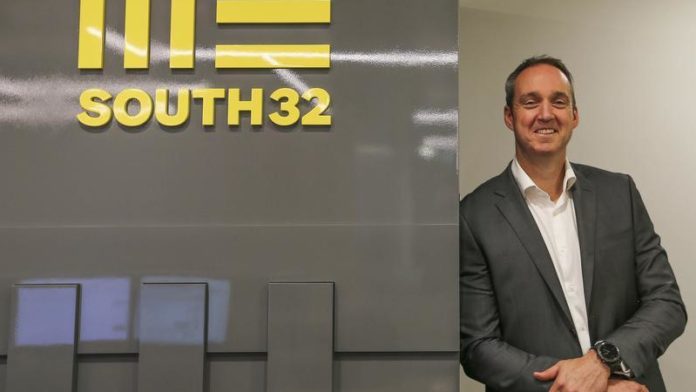
SOUTH32 CEO, Graham Kerr, acknowledged the improvement in the business climate of South Africa’s mining sector, but he warned that the redraft of the Mining Charter did not go far enough to encourage sufficient new investment.
“It is good to see the Mining Charter settled and the current mines minister [Gwede Mantashe] is very consultative which is appreciated,” said Kerr in response to questions following the firm’s annual general meeting.
“But I’m not sure it encourages enough new investment.”
On balance, the redraft of the Mining Charter, which was gazetted in South Africa’s Parliament on September 27, has received positive assessments from analysts, as well as by the Minerals Council, the organisation that represented most of the country’s mining sector during charter negotiations.
For instance, the charter had dispensed with an earlier suggestion of a 1% pretax dividend to the state, but it retained an increase in black ownership for new mining licences, and where mining licences are to be transferred, to 30% from the current 26% target.
Other aspects of the charter are opaque. For instance, the mechanism through which a carried interest to communities and employees will be paid is an unknown, and subject to a 60-day consultation period between the government, the mining sector and other stakeholders. The consultation period will result in agreed regulations that will be appended to the Mining Charter.
Financiers at the ‘coal face’ of investment, however, have given the charter short shrift. Paul Miller, MD of CCP 12J Fund Ltd, said the Mining Charter redraft had ” … set a trajectory of progressive, creeping expropriation of investors’ returns”.
Peter Major MD at Cadiz Coporate Solutions, described the Charter as a “manifesto”, and said none of the investors he had shown it to in the United States and Canada during a recent trip “… had been able to get past page four”.
ESKOM
Asked for his opinion on recent statements that state-owned enterprises were to be reconfigured, Kerr said it was promising that the government recognised the importance of “… good, reliable, competitive power prices. But there is more work to be done”.
“What we are very concerned about is the state of health of Eskom,” said Mike Fraser, a member of South32’s executive committee and responsible for managing the group’s southern Africa assets. The precarious financial position of Eskom – which currently has debt of some R399bn – was “… a risk to the economy”.
“I think Eskom realises it can’t trade out of its position,” he said. “Price escalations to cover debt are not sustainable,” he said.
The group lost R2.3bn for the 2018 financial year whilst its core electricity business lost just over R4bn. Eskom recently applied for a 15% electricity tariff hike for the next three years, beginning 2019-2020 even though electricity prices have increased 350% since 2007 versus inflation of 75% over the same period.
South32’s comments follow important statements by newly appointed finance minister, Tito Mboweni, regarding the “reconfiguration of state-owned enterprises”. Delivering the country’s Medium Term Budget Policy Statement (MTBPS) on October 24, Mboweni said: “Our current challenges with state-owned companies present an opportunity to demolish the walls that exist between the private and public sectors”.
The Minerals Council described Mboweni’s MTBPS as “honest” and “frank”.
“Particularly interesting is his talk about the reconfiguration of state-owned enterprises, and the breaking down of walls between the public and private sectors. We await the detail of what this might mean. It is possible that government is being pressed into considering the adoption of radical measures that it has previously been reluctant to adopt,” it said.










